Across America, young adults are experiencing a macro erosion of trust towards established support systems. This trust deficit cuts across all income classes, but it is especially prevalent among youth in traditional institutions, and most acute in the school setting.
Historically, school existed as an anchor of support for a young adult, but today, schools are often unfairly tagged by many students as a place of distrust. Students worry they are risking judgment and that their needs are not being met. In urban and poor settings in particular, the trust index is in a downward spiral, as at-risk students do not view school as a welcoming place.
The trust deficit is more than a school issue. In fact, it is a compounded problem of immediate social support systems, involving the youth’s family and home life, friends, faith, and community, or lack thereof. Take just one aspect of an at-risk youth’s life — the high likelihood of the lack of a mentor. Without the support from a mentor in a young adult’s life, he or she is at risk of a combustive situation.
Faced with an abundance of challenges outside of school — from raising a young family or working a full-time job, to poverty, housing, illness, gangs and violence, abuse and drugs — at-risk youth begin to assign blame on school districts, furthering the trust deficit. There also remains the painful fact that many school districts continue to be under-resourced and offer mixed capabilities, often unsuited to address the needs of the students most in need. This dynamic of students’ not viewing school as a place to build trust stacks up to an acute societal problem.
With some creative thinking, there is an opportunity to solve this problem at scale. Indeed, some brands historically seen as ‘fallback’ schools are now capable of meeting the needs of this cohort at scale. I know because I happen to be the CEO of one of them — Penn Foster.
As the largest convener of the at-risk youth and adult population, Penn Foster has the capability to build trust-based relationships with our students and their colleagues. Thanks to the commitment of our team and partners, including one in Philadelphia, Penn Foster offers a place’ where students across the nation come together virtually to be part of something greater than themselves, a community of support and aspiration.
Instead of imposing discipline and judgment like a traditional school, Penn Foster operates on the knowledge that students want to go to school at a pace that works for them. Students feel comfortable to learn, and can reach out for help from instructors and peers whenever they need it.
Our alternative model sufficiently fills not only the market need of closing the skills gap and upskilling the workforce, but offers a unique support system to students who have no other means of support in their lives. This holistic approach to education is just one way Penn Foster and other alternative education brands and initiatives are addressing the needs of the 21st Century learner.
Penn Foster does much of our most important — and impactful — work with partners. For instance, The Choice is Yours (TCY) is an innovative program created by the Philadelphia District Attorney’s Office, Municipal Court and the Defender Association of Philadelphia and implemented by JEVS Human Services and Penn Foster. The program offers first-time, nonviolent felony drug offenders facing a one to two year prison sentence the opportunity to receive education and workforce training along with social services rather than serve time in prison.
JEVS Human Services and Penn Foster’s collaborative effort emphasize how innovative workforce development and educational opportunities are important components of a toolset that helps provide members of the community a means to succeed in life. At-risk young adults now have a second chance to turn their lives around and become productive members of the community, through an opportunity that was not available to them before.
When Penn Foster and JEVS Human Services set out to create TCY, we weren’t sure it would work, but we knew it was worth the chance. The youth in our country have a level of distrust toward institutions that cannot be allowed to linger and become the norm. It is in our power — in our schools and in our communities — to begin to turn this around. Our goal must be to restore a high level of trust between young people and our support systems, not just in Philadelphia but around the country.
